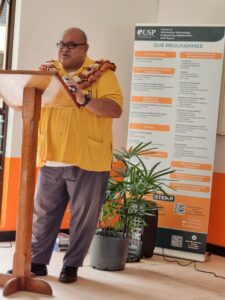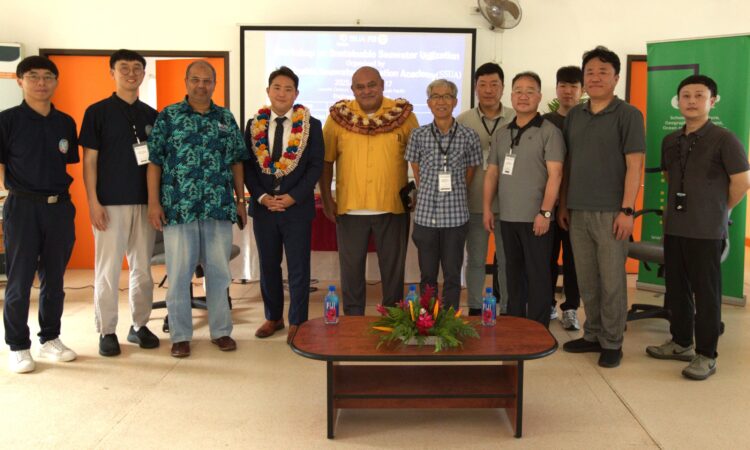A four-day workshop on Sustainable Seawater Utilization began on Monday, 14 April, at The University of the South Pacific’s (USP), Discipline of Engineering’s Projects Lab at Laucala Campus in Suva.
The workshop is covering many important aspects of seawater utilization including: Introduction to Seawater Air Conditioning, Hydroponic Growth of Vegetables, Seawater Aquaculture, Cold Water Ecosystems for harvesting species that are found in cold countries, Demonstration (and participation) of Hydroponic kits, Ocean Thermal Energy Generation, Cultivation of Marine Plants for Bio-energy and Bio-fertilizers, Sustainable Development Goals that will be Addressed by this Project, Oceanography, and Scuba Diving under the banner of the ‘Sustainable Seawater Utilization Academy’.

In his opening address on the first day, the Permanent Secretary of Fiji’s Ministry of Education, Ratu Meli Nacuva highlighted the significance of the workshop as it would create awareness on Sustainable Seawater Utilisation. It would also cover many practical uses of seawater that will be extracted from the ocean.
The PS also noted that this was the first multi-disciplinary Workshop of this kind being organised at USP.
He encouraged the participants to gain insights from the experienced lecturers during the workshop.
The main aim of the project is to replace traditional air conditioners with a seawater air conditioning system for cooling a large USP building. In addition, the project will provide 15,000 liters of mineral-rich desalinated water every day once completed.
The project team plans to send some of this water to the Southern Lau group, which frequently experiences water shortage. Five different types of vegetables will also be grown hydroponically, including strawberries and tomatoes.
This workshop is the first phase of the project on seawater air conditioning, which has received funding of US$3.8 million from the Korean Ministry of Oceans and Fisheries.
The first day’s presentations are mainly about the Engineering aspects, the presentations on other topics will continue till the end of the Workshop.
The participants consist of High School (Year 13) and university students, staff, science teachers and researchers and multinational agency representatives.
According to Professor M R Ahmed, the Project Coordinator from USP, capacity building was an important aspect of this project.
This is the reason Year 13 students were invited to the workshop, to make them aware of this new technology and to create interest in them in this multi-disciplinary area.
Professor M R Ahmed
While the design of the seawater air conditioning system is mainly an Engineering work, a number of project outcomes including mineral-rich desalinated water, seawater aquaculture, extraction of biofuels and biofertilisers from the ocean will be among the byproducts, once the system becomes operational.
Prof Ahmed added that the workshop also intended to create more interest among high school students in the field of STEM (Science, Technology, Engineering and Mathematics), especially Engineering.
Students from other island countries are also participating in this workshop. They are encouraged to learn about seawater air conditioning and the associated benefits and take the idea of this new technology to their countries for implementation.
Professor Ahmed
The workshop will conclude on Thursday, 17 April.

